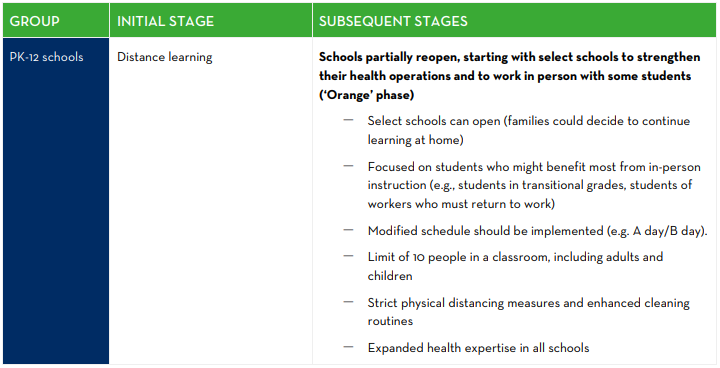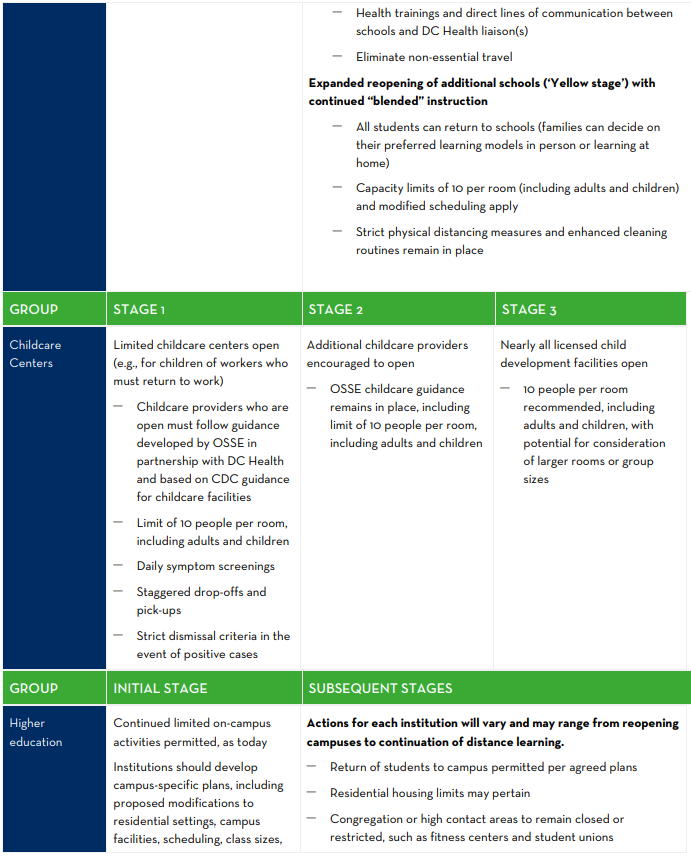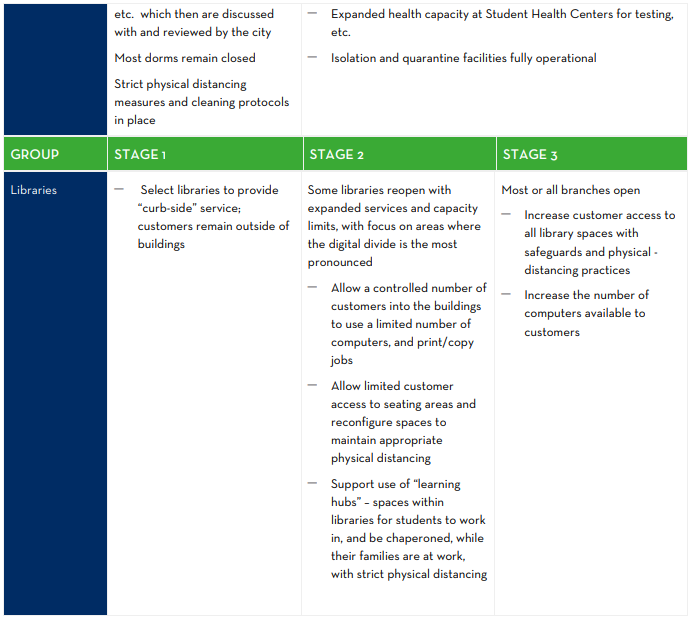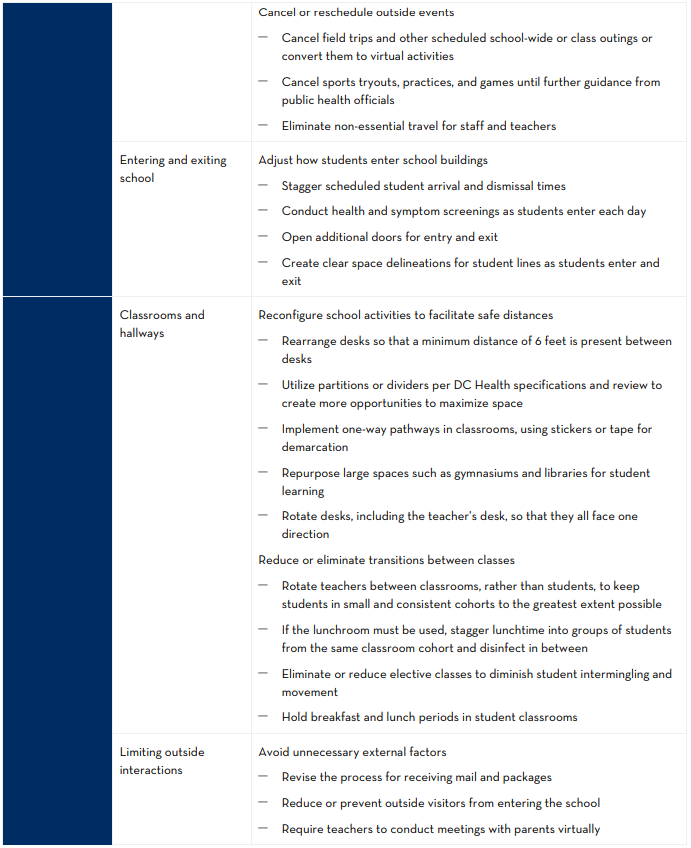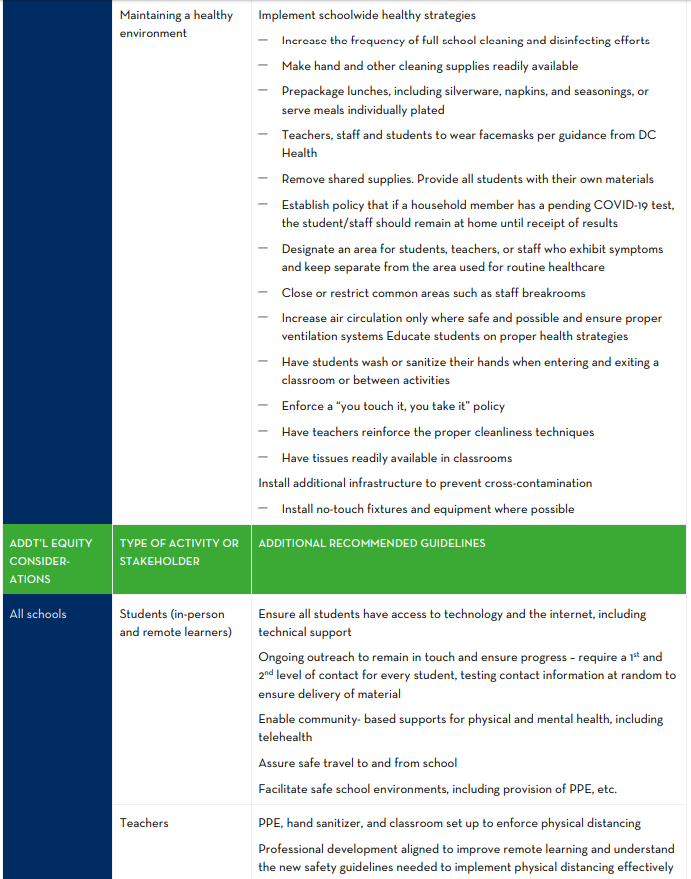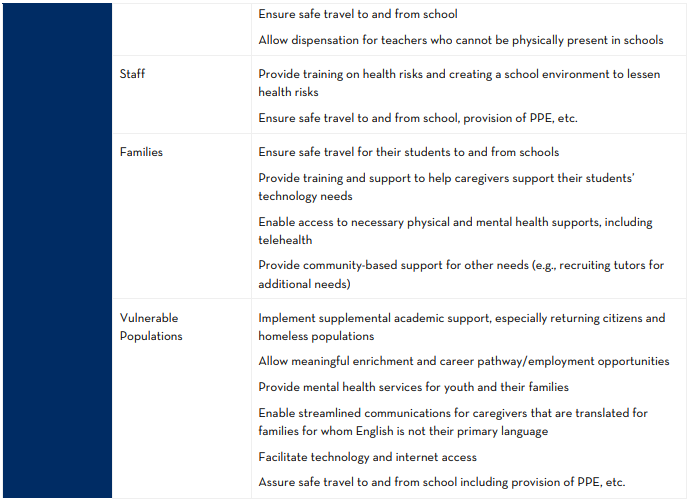Title Page
-
Site/Client
-
Date
-
Prepared by
-
Location
EDUCATION AND CHILDCARE COMMITTEE
STAKEHOLDER INPUT
-
The Committee engaged stakeholders across the District including students, families, teachers and school staff, LEA and school leaders, childcare providers, leaders of local colleges and universities, health officials, city agencies, community members, and non-governmental staff.
More respondents to the city’s online public survey shared feedback for education than for any other committee. Resident responses ranged from parents who wanted an immediate reopening of schools, to those who wanted to wait until a vaccine was available. In addition, the Committee spoke with Councilmember David Grosso, who provided additional community feedback he received through his position as Chair of the DC Council’s Committee on Education. In all, the Committee collected research and feedback from 34 organizations and groups, along with thousands of survey respondents. In total, the report’s recommendations reflect dozens of 1-on-1 discussions between the 25 committee members and the community, as well as feedback from 12 focus groups, responses from 11 surveys, the review of 14 local reports or resources, and 14 research articles and reference materials from jurisdictions outside of Washington, DC.
STAGING RECOMMENDATIONS
-
In addition to the report’s primary guidance and universal safeguards (e.g., physical distancing of at least 6 feet, use of masks in public spaces - including when in schools and higher education institutions - stringent sanitation and hygiene practices), the Committee recommends the following guidance for the subsectors listed below:
-
-
RECOMMENDED SAFEGUARDS
-
The committee also recommends adoption of the sub-sector specific safeguards outlined below:
-
-
-
OTHER RECOMMENDATIONS AND ‘BIG IDEAS’
-
The committee and its members propose several important initiatives and ideas for consideration, which include:
-
– All schools across the city should adopt the same schedule (e.g., A and B days, or A and B weeks), along with employers in the District and, ideally, Maryland and Virginia. In a similar way, LEAs should consider coordinating on their school-year schedules, with common start and end dates and the inclusion of a “pause” of in-person learning to assess health effects (if deemed essential by DC Health).
-
– All schools will need to build and sustain strong remote learning capabilities, as all students continue to learn at home at least some of the time. LEAs should consider collaborating on virtual instruction to meet new scheduling demands. Toward the goal of equity, the Committee recommends the city prioritize high-quality remote learning opportunities for vulnerable populations, particularly those who are at most risk of falling further behind or disconnecting from school.
-
– The city should introduce new ways to support learning-at-home. Every student must have access to internet through a combination of hotspot purchases, partnerships with internet providers, and select 38 Recommendations to the Mayor expansion of public Wi-Fi. The city should ensure needed technical support for families. “Learning hubs” should be established in government and employer buildings, with internet access, meals, and adult supervision. The city should also produce co-op guidance for families that want to safely coordinate shared childcare.
-
– The city should coordinate closely with DDOT and WMATA around students and families who are commuting to school. This may include coordinating transportation timing and capacity, or the allocation of dedicated space on transportation routes for students commuting to and from school.
-
– The city should ensure childcare providers get further guidance, peer-to-peer learning, training, and technical assistance as they deliver high-quality care and education to DC's youngest learners in this new environment, particularly given the enrollment and revenue constraints under which they operate.
-
– The city should implement a consultative approval process for each college and university’s reopening plan, given campus complexities, high numbers of students converging from around the world, and high-risk factors.
COMPLETION
-
Additional Notes
-
Sign Off






